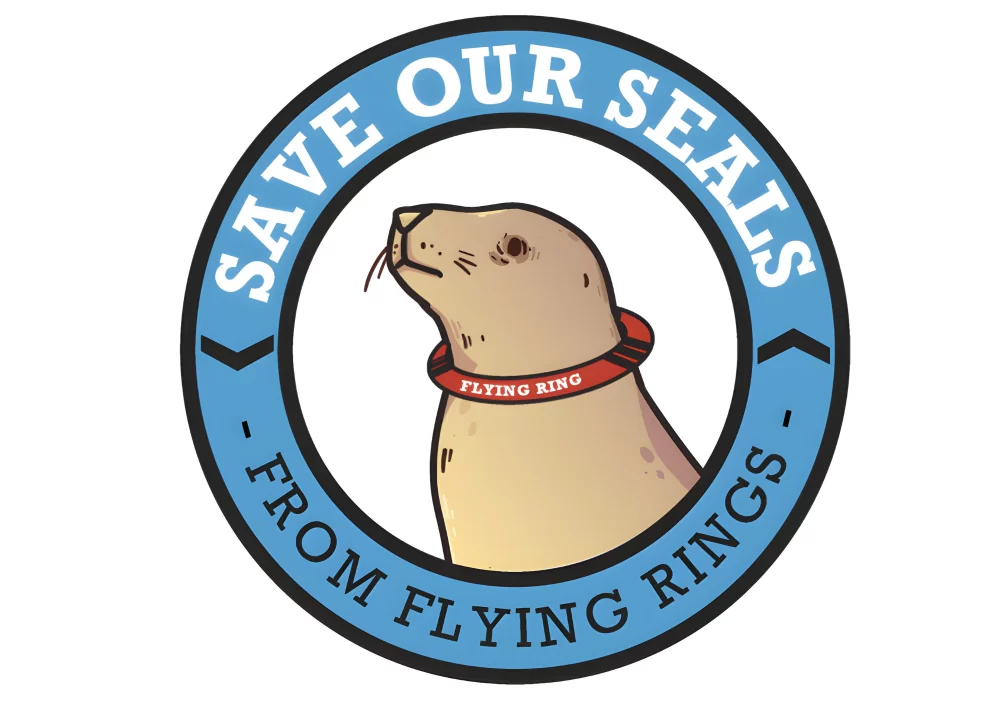Save Our Seals from Flying Rings
Cornwall Council has passed an important motion that is vital for the ongoing protection of our marine life. They are moving to ban plastic “flying ring” frisbee toys. Retailers have been urged to voluntarily stop selling these rings and the public have been encouraged to switch to safer alternative, like solid-disc frisbees. These crucial measures have been taken to protect our seals.
The Risk
These cheap, plastic, ring toys can pose a real danger to local seals. If a seal becomes entangled in one, the ring can tighten over time as the animal grows, causing painful injuries, infections, or even death. Rescue and rehabilitation efforts can cost between £10,000–£15,000 per seal. This is a prime example of how our consumer habits can have huge impacts beyond just us. The prevention of this problem, through this ban, will be both more effective and humane.
The UK Seal Alliance’s “Save Our Seals from Flying Rings” campaign has been gaining huge support, already collecting over 33,000 petition signatures. Its goals include urging the UK government to ban imports of flying rings, helping councils promote voluntary bans, and encouraging manufacturers and retailers to offer seal‑safe alternatives. Cornwall is leading the way by choosing to put seals first.
Wings and the Cornish Seal Sanctuary
A real example of the devastating impact of these rings is the case of ‘Wings’. This seal was found entangled in a plastic ring in St Ives Harbour. Thanks to the joint efforts of the Cornish Seal Sanctuary and British Divers Marine Life Rescue, Wings was saved. This case served as a wake up call for many who began to realise the dangers posed by these toys.
The Cornish Seal Sanctuary is a fantastic charity dedicated to rescuing and rehabilitating seals and marine animals that are in need of care. They strive to release them wherever possible but also provide a permanent home for those who cannot be. You can visit them in Gweek, TR12 6UG, and see the fantastic work they are doing. You can also support them by donating, sponsoring a pup, or volunteering at the sanctuary.
By taking this important step, Cornwall is showing that it is possible to prioritise wildlife. This choice to protect marine animals reflects a local desire to protect our ecosystems. When you visit us, make sure you also adopt this care and respect for the environment and the creatures you share it with.


